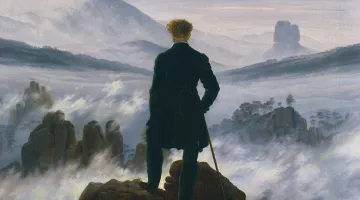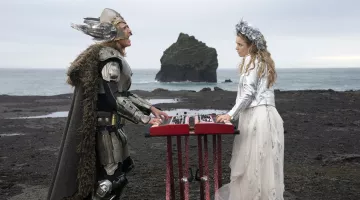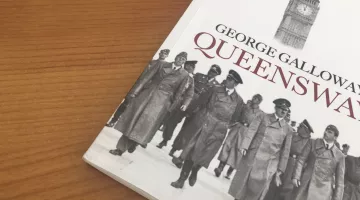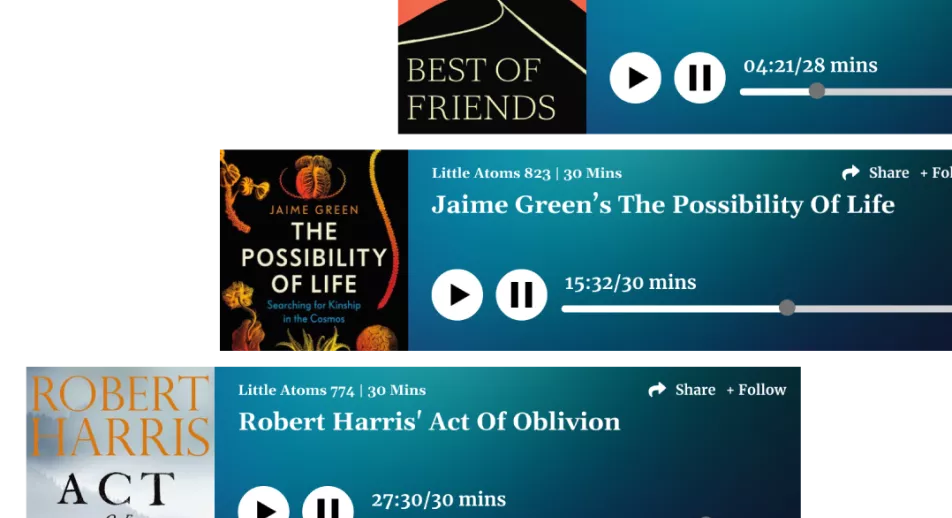Indoors and introspective - 2020’s cultural highlights

These are personal choices from the culture that I consumed in 2020. If you choose to take them as recommendations, well, don't blame me.
Book: A Ghost In The Throat Doireann Ní Ghríofa
The story of Art Ó Laoghaire – a brave Irishman murdered by British forces for refusing to toe the line – is familiar to most Irish people, through Caoineadh Airt Uí Laoghaire, the poem written by his grief-stricken wife, Eibhlín Dubh Ní Chonaill, in 1773 and handed down ever since. As probably the greatest love poem written in Irish, it is a fixture on the Irish school curriculum, but it’s a much more complicated work than its place in school readers would suggest. Art was not a simple put upon peasant, but a cocky, handsome hussar in the Austrian army. His wife Eibhlín came from similar stock, her family having made its fortune in smuggling, but now at the peak of Catholic bourgeois respectability. Airt was murdered after he refused to give up his horse to the High Sheriff of Cork, Abraham Morris, as the Penal Laws dictated.
Eibhlín Dubh’s lament is a sensual and visceral thing. Irish language poet Ni Ghriofa’s book, which has been wildly successful in Ireland, traces her own obsession with the poem and the role of its author, who, in spite of the continuing fame of her work, has herself vanished into obscurity. Part memoir, part detective story, A Ghost In The Throat sees Ní Ghríofa set out to find what happened to Eibhlín Dubh after the death of her husband. Along the way we learn about Ní Ghríofa’s almost compulsive selflessness, manifested in addictive adherence to the functions of motherhood, biological and domestic. In self-examination, the poet realises how even a predecessor as illustrious as Eibhlín Dubh can disappear, to herself and others. Intimate and urgent, A Ghost In The Throat also contains Ní Ghríofa’s own new, thrilling translation of one of the masterpieces of Irish literature.
Short stories: The Curfew, Life Without Children (Roddy Doyle)
Roddy Doyle’s Everyman schtick can occasionally chafe (as in his tedious Two Pints sketches) but on form, there are few writers who can master genuine emotion quite like he can. In these two stories, published in the New Yorker almost a year apart, Doyle inhabits a middle-aged man, fearful of his future now that his children have left home and deprived him of his role as protector and antagonist (“He loved his daughters’ lectures”). In The Curfew, aging hits Doyle’s protagonist with a diagnosis of high cholesterol, with the attendant pills and advice, as he prepares for a storm about to hit Dublin and reminisces about a long-ago walk with an infant daughter. In Life Without Kids, a work trip to Tyneside in the early days of lockdown comes with the revelation that there is a thin line between being freed from responsibility and being deemed unnecessary. To borrow a line from Anne Enright’s Actress (another highlight of this year’s reading), Doyle’s characters don’t do much, they “just realise things and feel a little sad”. But what realisations, and what sadness.
Streaming: Shtisel
Admittedly not from this year, but a series from 2013, available on Netflix since 2018, that enjoyed some attention after the success of Unorthodox. Like Unorthodox, Shtisel takes place in the world of Hassidic Judaism, dense with ritual, code and custom. Unlike Unorthodox, it does not portray this world as a place from which one must escape, but rather one which must be navigated as any other.
At its core is Shulem Shtisel, a man approaching retirement age, left anchorless after the death of his wife, and fretting over his children, in particular young and directionless Kive. Shulem and Kive’s relationship is strained and difficult, but never less than loving, as the son’s artistic and romantic instincts clash with his father’s desire for respectability. Older sister Neta struggles to hold her own family – including precocious daughter Ruchami, played by Unorthodox star Shira Haas – functioning.
As the two series go on, they expand and deepen, every character given space to develop and breath beyond simple caricatures. The denouement of series two is heartbreaking and unforgettable. A prospective series three was delayed by the onset of Covid-19.
Music: Gold Record, Bill Callahan, What’s Your Pleasure?, Jessie Ware
Any album by a country artist that calls itself Gold Record and starts with the words “Hello, I’m Johnny Cash”, better live up to its claims.
Bill Callahan’s gradual mellowing from the angstiness of his early Smog records to the Carverish storytelling simplicity of new album Gold Record has been strangely comforting. The album is so sparse it would probably qualify as a spoken word record, but Callahan’s mature voice guides the listener through some simple narratives of maturing and learning to accept love on songs such as The MacKenzies, Breakfast, and Pigeons, a far cry from classics such as I Break Horses or All Your Women Things.
Callahan has not entirely lost his edge – Protest Song caustically dismisses earnest young singer songwriters (“I protest his protest song/I'd vote for Satan/If he said it was wrong”) but the transition from brooding preacher to meditative philosopher seems complete, and the listener is left reassured and even soothed, no small thing in this most anxious of years.
Jessie Ware, meanwhile, had the misfortune of releasing a party record in a year when parties were effectively banned. What’s Your Pleasure? sees Ware move away from soul crooning into a cheerful world of party dresses and mild flirtation. It’s rare that the word luscious used in describing a record means anything other than “more than three songs feature strings”, but What’s Your Pleasure? is satisfying, warm, and pleasingly decadent – a reminder that there will still, eventually, be dancing.
Television: Moon and Me
One of the few upsides of working from home for the majority of 2020 was the chance to get deeply involved with CBeebies bedtime programming in the company of my one-year-old daughter. This year, we have been mostly watching Moon and Me, the latest series from the creators of Teletubbies, and become more and more drawn into its metanarrative oddness.
There is a dollhouse, full of magic toys. Each night, a real child puts the toys to bed, and at the same time plants a prop in the house. After being put to bed, the main toy, Pepi Nana, writes a letter to the moon, asking if she can have a story. Each night the letter is received by lunar dwelling Moon Baby, even though narrator Nina Sosanya makes it very clear that Pepi Nana does not know that Moon Baby lives on the moon.
Delighted with the letter, Moon Baby flies down to the dollhouse. He plays his magical kalimba and wakes up all the toys, who then, usually, proceed to... read in silence. Except one of them will discover a book that is based on the prop that has been left by the real child. They all agree to read this book, at which point Moon Baby deploys his kalimba again and ushers them to Story Land, where they act out the book’s story, in which they themselves are the main characters. Then they sing a song. Then they all go back home to the dollhouse, and Moon Baby returns to the moon.
There is a character called Mr Onion, who says “onions” and another called Sleepy Dibillo, who appears to have some sort of chronic fatigue condition. Mr Onion seems to be his carer. The exact nature of their relationship is never made clear, but it is deep and loving with a suggestion of a hinterland way beyond the confines of the dollhouse. There is Collywobble, who it is suggested is neurodiverse, there is Lily Plant, who for some reason never gets to go to Story Land, and there are Little Nana and Lambkin, who are annoying and not worthy of your concern.
None of these characters bats an eyelid at the sheer oddness of their condition. No one ever asks who planted the prop, or why every book they own seems to be about themselves, or why Pepi Nana would write to the moon even though she doesn't know who lives there. In one episode, Michael Buble turns up and sings “If there were a horsey in the house/the horsey would be bigger than the house” over and over again. I fully expect that next year they’ll reveal it’s a Christopher Nolan project and the whole thing so far has in fact been taking place in Cillian Murphy’s brain.




